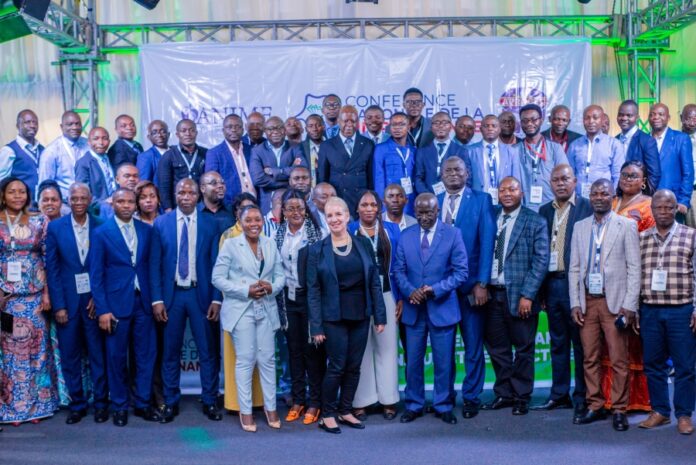A recent study by Adusei, M., & Adeleye, N. (2024) titled “Start-up microenterprise financing and financial performance of microfinance institutions” published in the Journal of Small Business & Entrepreneurship by Taylor & Francis Group shows start-up microenterprise financing generally improves the financial performance of microfinance institutions (MFIs)
“
Start-up microenterprise financing generally enhances MFI financial performance, but its effectiveness diminishes as MFI size increases.-Adusei, M., & Adeleye, N. 2024
The study explores the impact of start-up microenterprise financing on the financial performance of microfinance institutions (MFIs). It reveals that providing financial support to start-up microenterprises generally leads to improvements in the financial performance of MFIs. However, this positive effect diminishes as the size of the MFI increases, indicating that larger institutions benefit less from financing start-ups compared to smaller ones. To investigate this relationship, the study employs a range of panel estimation techniques, allowing for robust analysis across different MFIs over time. In addition, an interaction analysis is conducted to specifically examine how MFI size moderates the impact of start-up microenterprise financing on financial outcomes. The interaction analysis is critical in understanding the nuances of this relationship, as it highlights that while start-up financing can enhance performance, its effectiveness is not uniform across all MFIs.
How the Study was Conducted
The study utilizes data from various sources, including Mix Market, the World Bank, and World Governance Indicators, covering a sample of 532 microfinance institutions (MFIs) across 73 countries between 2010 and 2018. The financial performance of these MFIs is assessed through two key metrics: operational self-sufficiency (OSS) and return on assets (ROA). Start-up microenterprise financing is quantified by the percentage of financed microenterprises classified as start-ups, while MFI size is measured using the natural logarithm of total assets. The study also accounts for a range of control variables, including efficiency, credit risk, capital adequacy ratio, breadth and depth of outreach, financial development, and GDP growth rate, to provide a comprehensive analysis of the factors influencing MFI performance.
What the Authors Found
The study found that start-up microenterprise financing generally improves the financial performance of microfinance institutions (MFIs) and the positive impact decreases when start-up financing interacts with the size of the MFI, meaning larger MFIs benefit less.
Why is this important?
Financial Performance Insight: The study provides evidence that start-up microenterprise financing improves the financial performance of microfinance institutions (MFIs), which is crucial for their sustainability and growth.
Risk Management: It highlights that the positive impact of financing start-ups decreases with the size of MFIs, suggesting that larger MFIs might benefit less from such financing, which is important for risk assessment and management.
Policy Implications: The findings offer valuable insights for policymakers and stakeholders in the microfinance sector, helping them to formulate strategies that enhance the effectiveness and sustainability of MFIs.
Literature Contribution: This research fills a gap in the existing literature by exploring the relationship between start-up microenterprise financing and MFI financial performance, contributing to a better understanding of the factors influencing MFI success.
What the Authors Recommended
- The authors emphasize the importance of collaboration between different stakeholders to improve outcomes.
- The study suggests implementing policy reforms to address existing challenges and gaps.
- The study advocates for more research to explore new solutions and validate findings.
- In addition, the authors recommend increasing education and training opportunities to build capacity and expertise.
In conclusion, the study by Adusei and Adeleye offers valuable insights into the impact of start-up microenterprise financing on the financial performance of microfinance institutions. While this type of financing generally enhances the operational efficiency and returns of MFIs, its effectiveness is moderated by the size of the institution, with smaller MFIs benefiting more. The findings emphasize the need for targeted strategies and policies that account for the varying effects of start-up financing across different MFI sizes. This research not only contributes to the academic literature but also provides practical guidance for policymakers, stakeholders, and microfinance practitioners in optimizing financial support to drive sustainable growth and performance in the microfinance sector.
















 The African Research (AR) Index is a comprehensive scholarly directory and database focused explicitly on journal publishers that publish and disseminate African research.
The African Research (AR) Index is a comprehensive scholarly directory and database focused explicitly on journal publishers that publish and disseminate African research.

